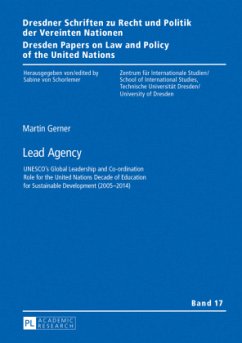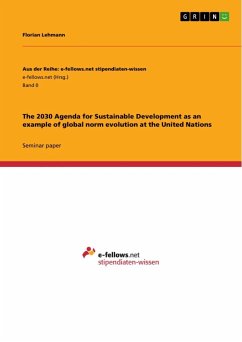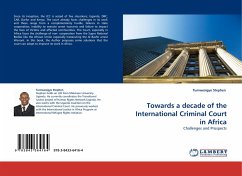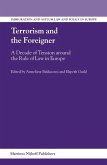In the future, advocacy in the field of International Relations will increase in importance. Mandates pertaining to particular issues have therefore been announced and officially assigned. In analysing the normative framework of the United Nations Decade of Education for Sustainable Development (2005-2014) the prominent and novel concept of lead agency is introduced, applied and comprehensively discussed. The major characteristics and implications of this concept are illustrated in the context of the United Nations Educational, Scientific and Cultural Organization (UNESCO) and its mandate for global leadership and co-ordination. This publication contributes to the theory and practice of organizational leadership performance by proposing viable criteria for assessing achievements and challenges. The interdisciplinary approach adopted meets the needs of both practitioners in the field of education for sustainable development and scholars dealing with regime theory and new institutionalism.








